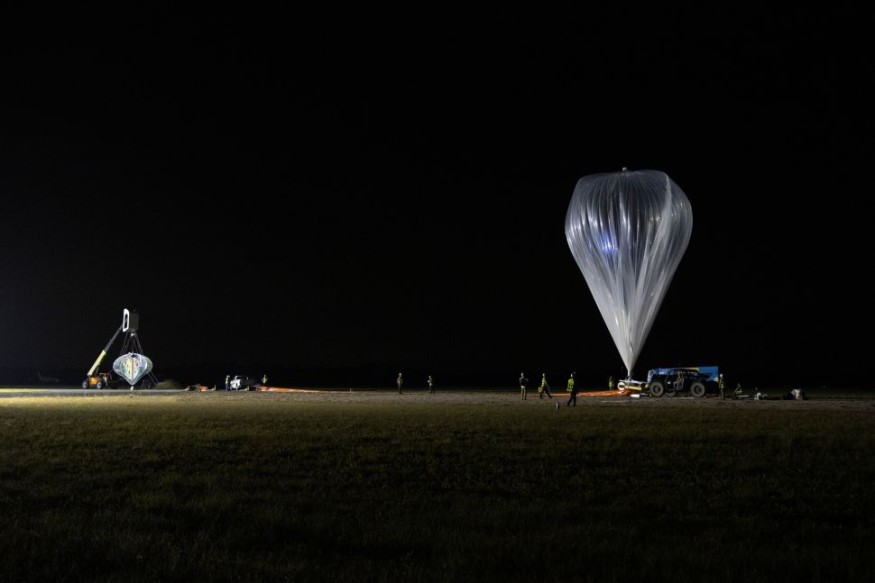If you have a lot of money, you can now reserve a ticket on a balloon journey to the stratosphere.
Seat Booking
Seat bookings for Space Perspective's "Spaceship Neptune," a balloon-borne pressurized capsule planned to take eight passengers and one pilot to an altitude of 100,000 feet, have begun (30,000 meters). The cost of each seat is $125,000.
During their trips, travelers on the Spaceship Neptune will spend around six hours on board the capsule, which will carry them above 99 percent of Earth's atmosphere and reveal our world against the darkness of space.
Luxurious Commercial Trip

According to Space Perspective officials, the experience will be low-impact and quite the luxury. The ascension is moderate, with none of the intense G-forces typical with rocket launches because the capsule is lofted by a huge balloon. And, among other things, the Spaceship Neptune will have reclining seats, panoramic windows, a refreshment bar, and a restroom.
By the end of 2024, Space Perspective hopes to start commercial operations. Last Friday (June 18), the firm made a significant step toward that objective by launching its maiden test flight from the Space Coast Spaceport in Florida, close to NASA's Kennedy Space Center.
The uncrewed flight took six hours and 39 minutes and employed a full-size Spaceship Neptune simulator. According to Space Perspective representatives, it soared to a maximum height of 108,409 feet (33,043 meters) before splashing down in the Gulf of Mexico, roughly 50 miles (80 kilometers) off Florida's west coast.
Taber MacCallum, co-CEO and co-founder of Space Perspective, stated in a statement, "I could not be more proud with the performance of the crew and the flight system."
"This Neptune One test flight sets off our lengthy test flight campaign, which will be incredibly robust because we can conduct testing without a pilot, making Spaceship Neptune a very safe method to get to space," he said. (To be clear, the capsule does not officially reach space, which is defined as either 50 miles or 62 miles above the Earth's surface, depending on who you ask.)
Test Flights

According to business authorities, the test flight on June 18 included a variety of research payloads. The winning submissions in a scientific project competition held by the educational charity Higher Orbits for seventh through 12th-grade students and an ozone-sensing apparatus built by experts at the University of Northern Florida were among the experiments.
"Living Light," the largest art installation ever to fly so high above Earth, was also aboard the voyage.
The artist team Beyond Earth created Living Light, which "echoed the form of the capsule that would ultimately take Explorers to space, and acquired the look of a jellyfish," according to Space Perspective. "The project reflected a common purpose to raise awareness of all living creatures' vital biodiversity and interdependency, particularly hidden ocean life, which is rarely featured in the tale of life on planet Earth."
Space Tourism
Like Virgin Galactic and Jeff Bezos' Blue Origin, other space tourism companies will compete for clients. These firms have developed suborbital spacecraft that will transport people far higher than the Spaceship Neptune but on much shorter trips. From takeoff to landing, a journey on Blue Origin's New Shepard vehicle, for example, will take only 11 minutes.
Prices may vary slightly as well. The most current announced price for a ride aboard Virgin Galactic's six-passenger, two-pilot VSS Unity space aircraft was $250,000.
Ticket pricing has yet to be published by Blue Origin. For $28 million, the firm just auctioned off a place on its first crewed spaceflight, which is set to launch on July 20. But that's a premium price; someone paid a lot of money to be a part of history and rub shoulders with Jeff Bezos, who will also be on the trip.
Virgin Galactic, like Blue Origin, plans to begin flying clients shortly. Last month, VSS Unity completed its third test flight to suborbital space. Virgin Galactic executives have stated that the vehicle's test campaign will be completed this summer or early fall.
Read also: Potential Faster-Than-Light-Space Travel Facts: Alcubierre's Warp, the Key To Interstellar Travels?
For more Space news, don't forget to follow Nature World News!
© 2025 NatureWorldNews.com All rights reserved. Do not reproduce without permission.





